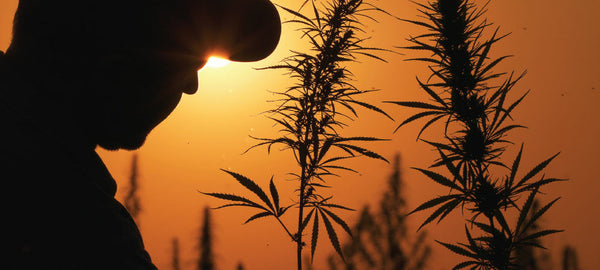Your Cart is Empty
Organic CBD Made with 💚 in Eugene, Oregon
Organic CBD Made with 💚 in Eugene, Oregon
Organic CBD Made with 💚 in Eugene, Oregon
Organic CBD Made with 💚 in Eugene, Oregon
September 16, 2022 3 min read
At Kanibi, we know that there are a lot of options for CBD consumers, but we also know that not all those options are equal. Here’s why.
The source of your CBD really matters.
There are definitely places in the world where hemp is grown more cheaply (we’ll get into that below), but the quality of those plants is worlds away from what we’re growing here. And that could have real repercussions on your health.
The U.S. isn’t the only place where hemp has suddenly become big business. While hemp production in the U.S. has increased dramatically in the last couple of years since the 2018 Farm Bill was signed, there are still American CBD companies that are sourcing their raw hemp from countries like China.
You may be aware of China’s zero tolerance approach to marijuana, but it also happens to be the world’s largest exporter of hemp. Much of that hemp is used for textiles, but a lot of it is also ending up in CBD products in the U.S. and other parts of the world.
The thing is, we have no idea how Chinese hemp is grown.There is no way at present to know what chemicals are being used in the farming process — and there is certainly no guarantee (and little hope, frankly) that the hemp is being grown organically.

While the U.S. hemp industry is still in its infancy, it has been well regulated from the beginning.The 2014 Farm Bill was the first in the country to allow pilot programs (usually connected to universities) to grow hemp for research.
We learned a lot in those first few years. Then, when the 2018 Farm Bill was signed, the USDA became the chief regulator for hemp production.
One aspect, though, of hemp’s new legitimacy in the U.S., is the growing use of pesticides. You might wonder how those two things correlate.Here’s how it works:
The Environmental Protection Agency (EPA) has to approve pesticides for specific crops. While hemp occupied a regulatory gray zone, there were no approved pesticides for hemp. That has recently changed, though.
In December of 2019, the EPA approved several pesticides for use. Most of these are biopesticides, derived from natural ingredients and suitable for organic growing. One of the new approved pesticides, though, is not.

Hemp has a couple unique features that make paying attention to growing practices especially important.
One of these features is that hemp is part of a group of plants that is excellent at phytoremediation. Quite simply, these plants, which also include sunflowers, willow, and poplar trees, are excellent at cleaning impurities out of the soil.
Hemp, with its relatively deep root system, is particularly good at this. It vacuums toxins, like heavy metals and other chemicals, out of the soil and groundwater.This has made it a very useful plant in areas where the soil has been badly contaminated.
Using plants to clean toxins out of soil is an exciting possibility, and so far it’s been used in some of the most badly contaminated places in the world (like Chernobyl). But the stuff that hemp sucks out of the soil doesn’t just magically disappear.
The toxins, such as lead, cadmium, nickel, zinc, and even arsenic, accumulate in the shoots and leaves of the plant.
Needless to say, you don’t want that stuff in your CBD tincture.
It’s also important to know that the extraction process for CBD usesa lot of hemp. Even when we use hemp plants with relatively high concentrations of CBD, we still need a lot of it to create our potent tinctures.
Any pesticides sprayed on the hemp are going to be concentrated in this process.
Because of these factors, at Kanibi we only source hemp from farmers who are committed to organic, sustainable farming practices.Further, we are committed to buying from farmers in the United States. With our country’s strong regulations (not to mention the benefit of building relationships with our farmers) there’s really no reason to go elsewhere.
